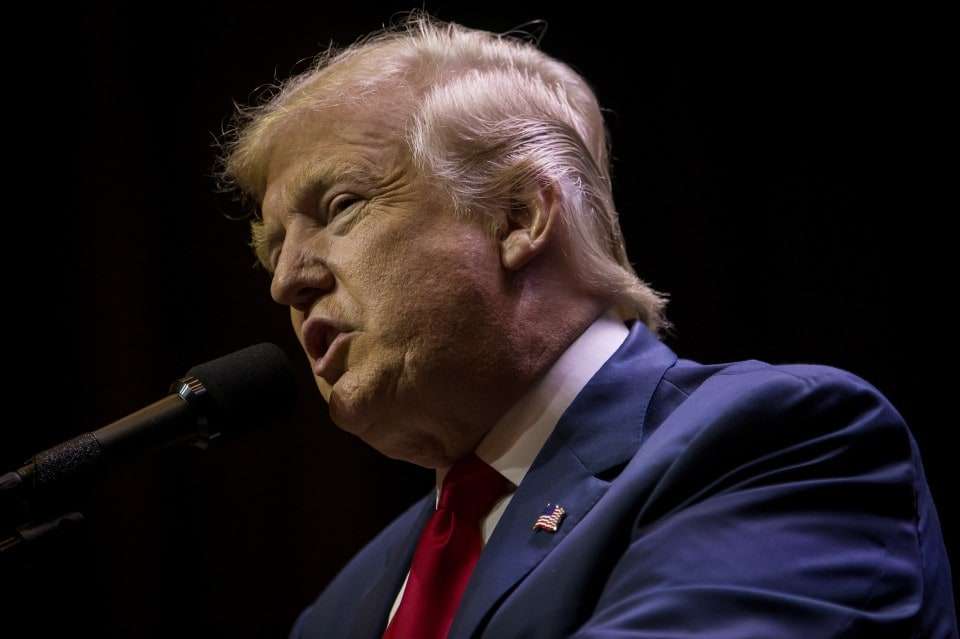The Volokh Conspiracy
Mostly law professors | Sometimes contrarian | Often libertarian | Always independent
Donald Trump: The constitutional law exam

Back in fall 2015, I taught constitutional law to a wonderful class of students. The first and longest question was one that might have seemed humorous at the time, but various things that have happened over the past two months keep bringing it to mind, so I thought it might be worth sharing.
Here it is, as originally delivered:
Question 1. (45 total points, 2250 words)
It is January, 2017, and Donald Trump has just been elected President of the United States. Trump is set for the inauguration at noon on January 20th (see U.S. Const. amdt. XX, sec. 1). That morning, at 9 a.m., Ford Motor Company announces that it has secretly moved substantial parts of its operations to Brazil, to take advantage of lower labor costs, laxer regulation, and to avoid retaliation from the soon-to-be President.
Trump is furious. After taking the oath of office (see U.S. Const. art. II, sec. 1.), now-President Trump announces his revenge. He says:
I promised to make America great again, and Ford has just shown us all that they are disloyal. Well I'm not going to let them do that. Ford has 48 hours to relocate their operations back to the United States where they belong. If they don't, well, I intend to use this new 'executive power' I just got. After 48 hours, I am blocking all of their new cars at the border unless they pay a 350% tax on the sales price of every car they bring into the country. Let's see how they like that.
48 hours go by, and Ford does not change its mind. Instead, the company focuses on selling cars to other countries throughout Latin America and does not attempt to ship any cars across the border into the United States.
President Trump is still not happy, and he has realized that he has other weapons in his arsenal - literally. On January 25th, he orders a nighttime bombing campaign against a Ford warehouse in Brazil. The warehouse is destroyed, but nobody is hurt. "That was a warning shot," he announces. "But I'm ordering another bombing on their Brazilian facilities every month until Ford comes back. Nobody laughs at us."
Alarmed, Congress immediately passes a "concurrent resolution" under Section 5(c) of the War Powers Resolution, requiring all U.S. forces to be removed from Brazil and from any location within 1500 miles of Brazil. Pursuant to the War Powers Resolution, the resolution is not presented to President Trump for his signature/veto. [Recall that the War Powers Resolution is at pp. 428-430 of the textbook, if you need it.]
"They can't do that!" President Trump responds.
Part A. (25 points)
Fearful about what will happen next, on February 14, Ford files a lawsuit in the federal district court in Washington, D.C., challenging the tax and bombing, and asking the Court to halt any future attacks on their facilities in Brazil.
You are a new law clerk for Judge Tanya Rogers, who is hearing the case. She asks you for a quick bench memo, addressing: (1) whether the case is justiciable; (2) the legality of the tax; (3) the legality of the Jan. 25th bombing; as well as (4) whether Trump is allowed to keep bombing Ford in the future.
What do you say?
Part B. (10 points)
Judge Rogers orders the bombing to stop (either despite, or because of, your bench memo in Part A). President Trump is not impressed. Rather than appeal the decision, he gives a press conference, saying: "This judicial decision is an outrage and a violation of the Constitution. Judicial activism! Maybe I have to obey Supreme Court decisions - I'm not sure about that - but the Constitution definitely doesn't require me to obey some lower court judge! Full speed ahead!"
Judge Rogers comes back to you, alarmed and puzzled. "I'm not really sure what I can do about this, but I do want to know… is he right?"
What do you say?
Part C. (10 points)
Increasingly alarmed, Congress decides to step in again. The House of Representatives votes to begin impeachment proceedings for Trump's various actions in Parts A and B. Also, for good measure, Congress passes a statute imposing a 100% income tax on Trump's presidential salary for the rest of his term. (Trump vetoes the tax bill; Congress overrides his veto by 2/3 vote.)
This time, President Trump decides to avail himself of the courts, challenging both the impeachment proceeding and the tax. Judge Rogers comes back to you, shaking her head. "Do I have to take either of these challenges seriously?"
What do you say?


Show Comments (0)